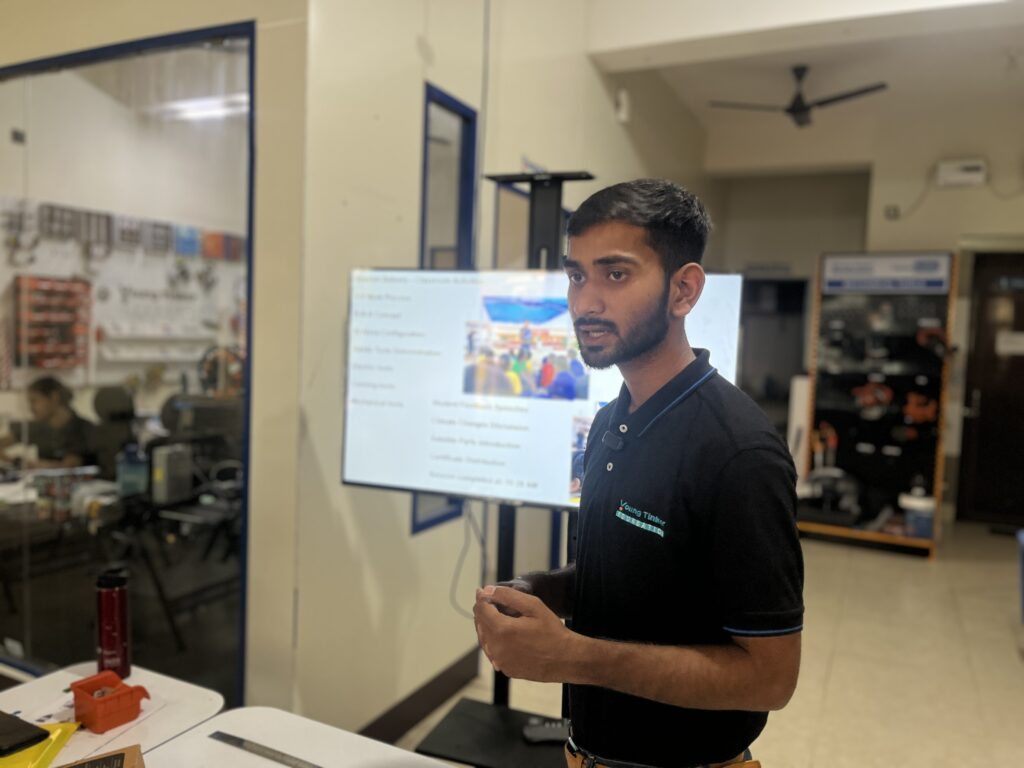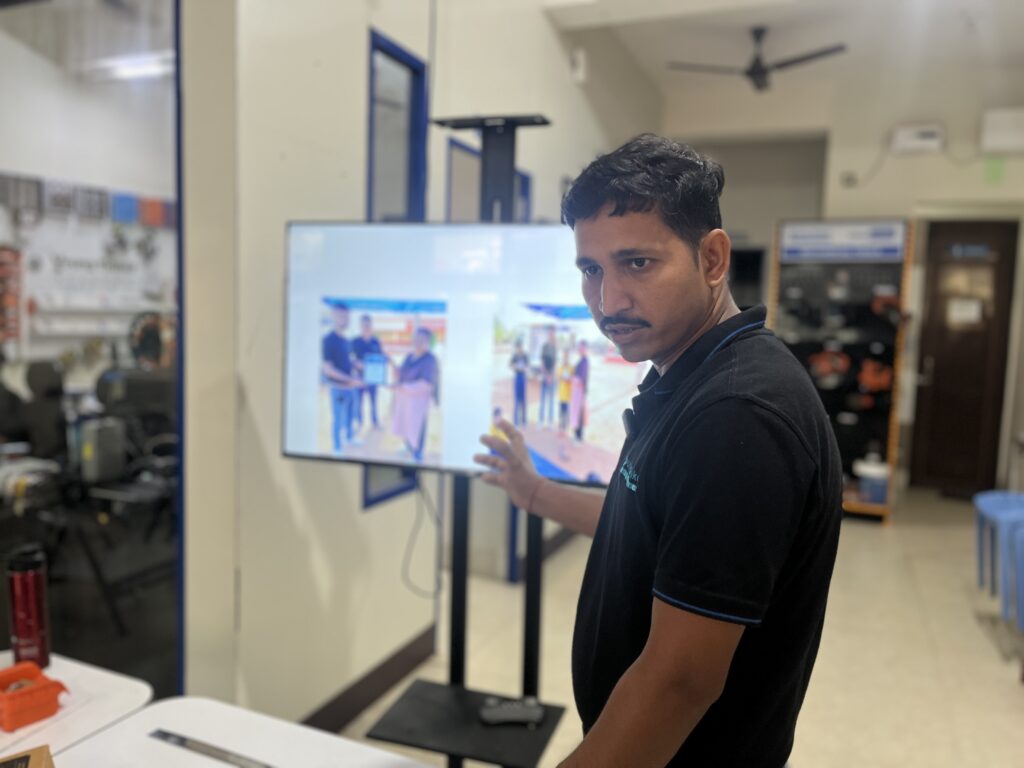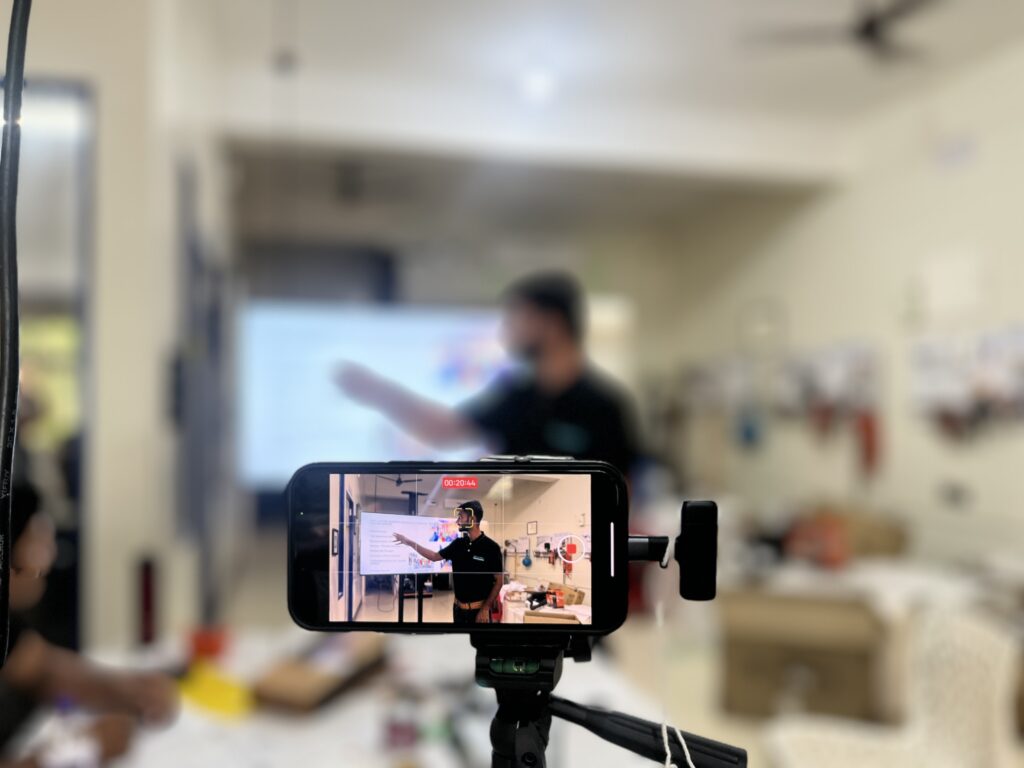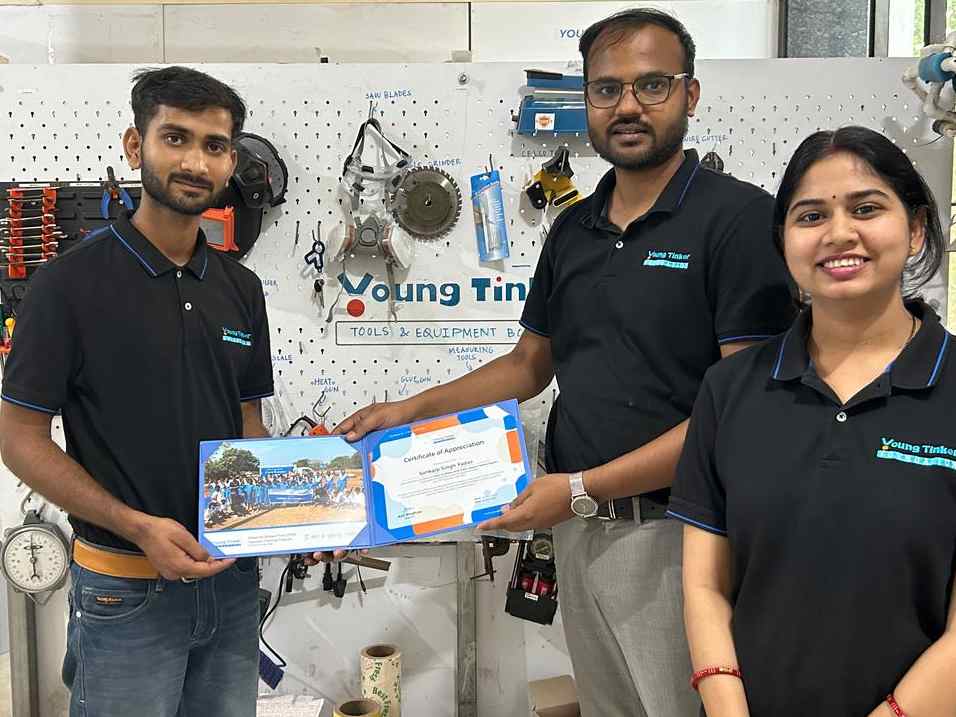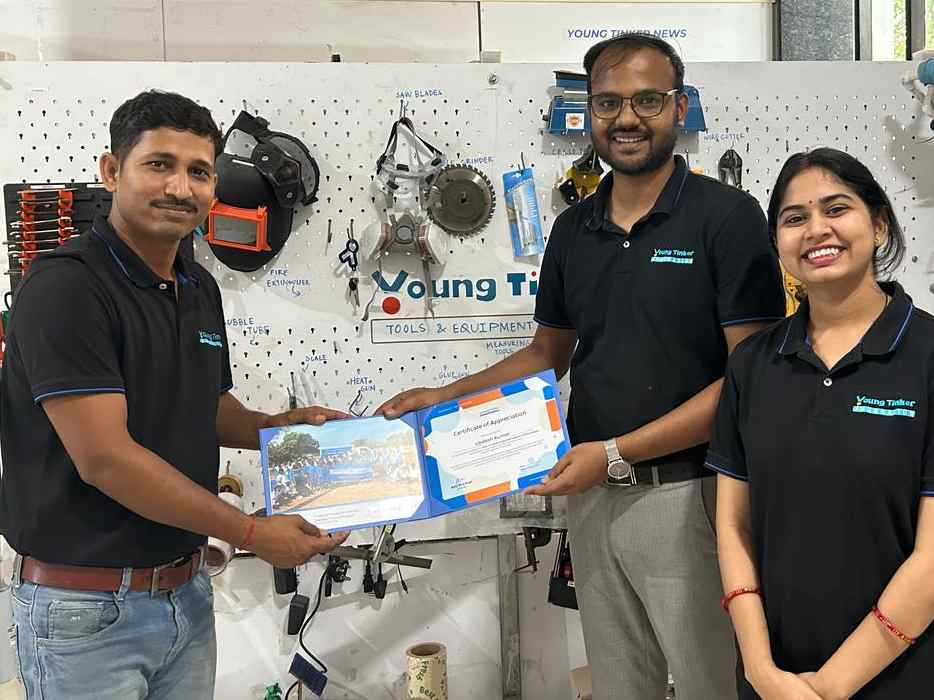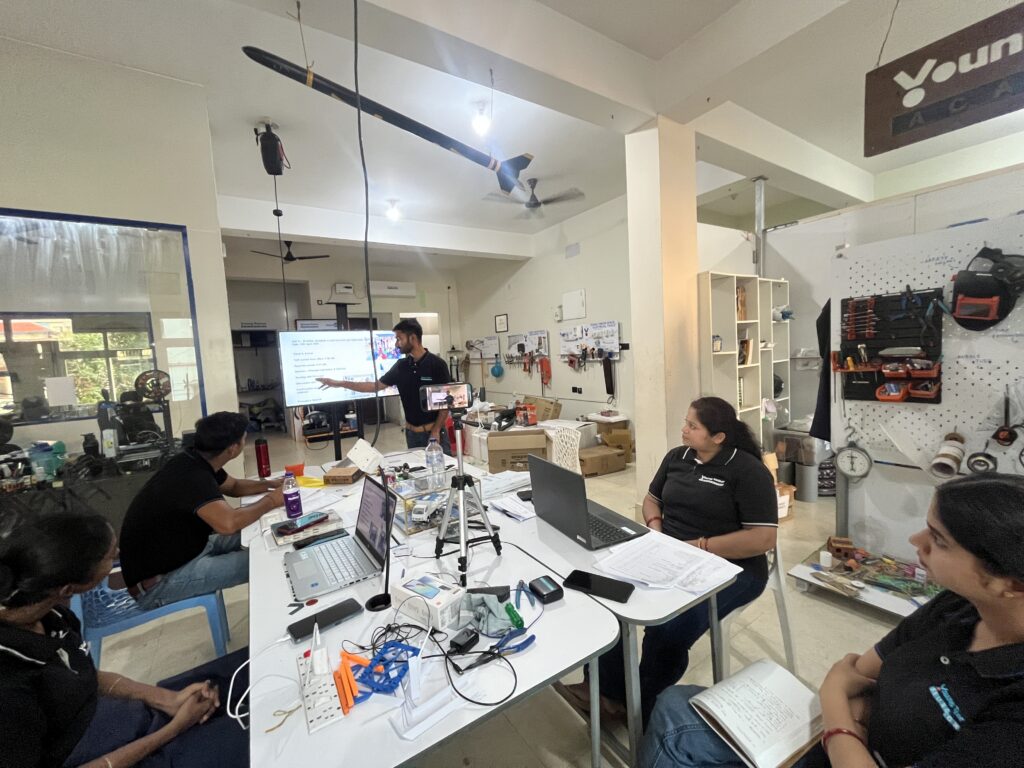Young Tinker Foundation, in collaboration with Mission Samriddhi—the social arm of Intellect Design Arena—and Banwasi Seva Ashram, is set to launch Tinker on Wheels (ToW) 2483A in Sonbhadra, Uttar Pradesh in the coming weeks.
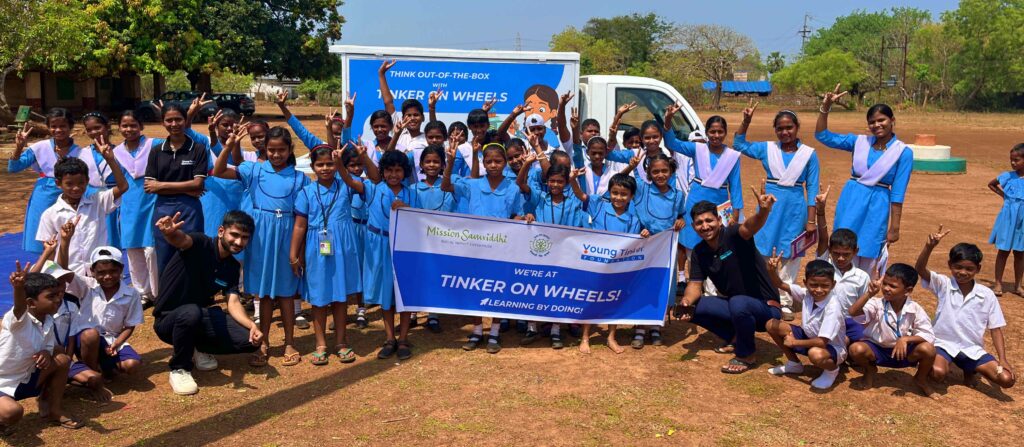
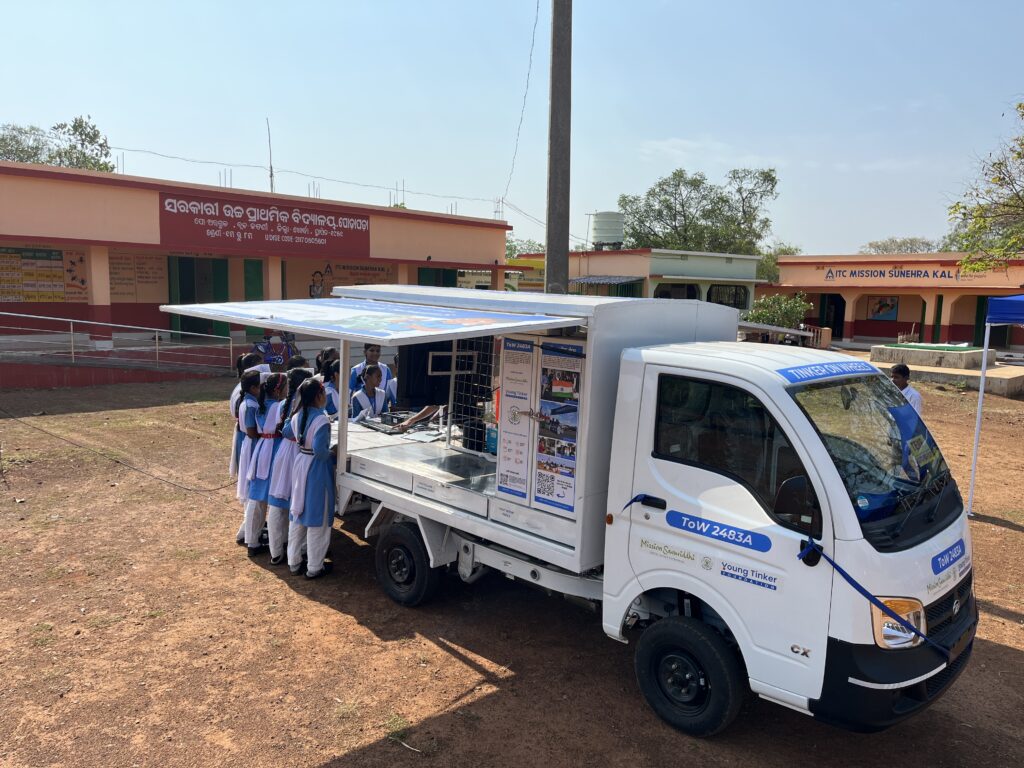
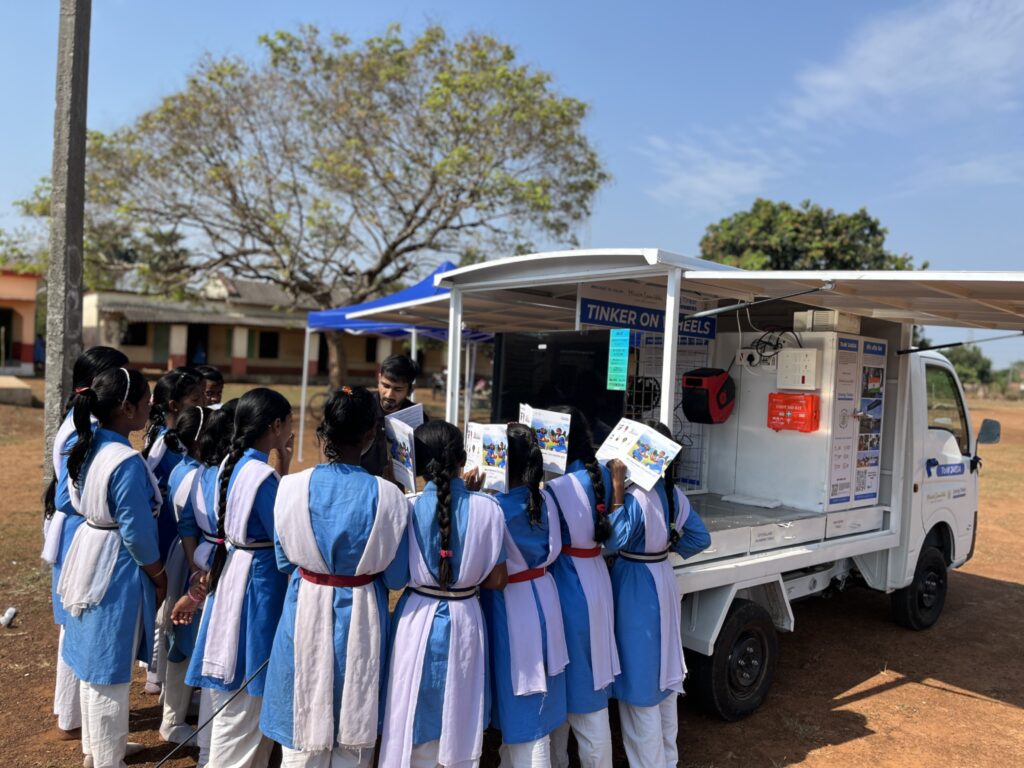
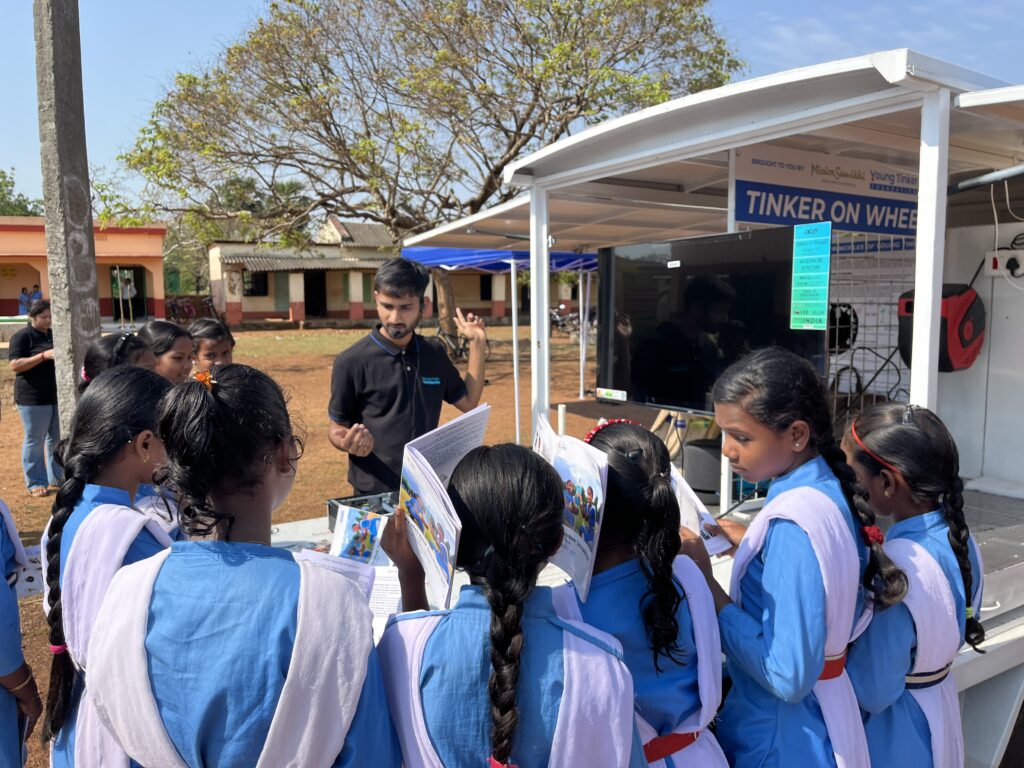
Preparing for the Launch: Training the Local Mentors
Before the program officially reaches schools in Sonbhadra, two passionate local mentors, Sankalp Yadav and Updesh Kumar, have been selected to take forward the ToW Unit 2483A. Both mentors belong to Sonbhadra, ensuring deep community connection and cultural understanding as they carry the mission to the remotest corners where hands-on STEM education is most needed.
Tinker on Wheels (ToW) transforms ordinary school playgrounds into fully functional STEM labs, sparking curiosity and innovation among students. [Learn more about ToW → Link]
To prepare for their mission, the mentors are undergoing an immersive 8-day residential Training of Trainers (ToT) program at Young Tinker Academy, Bhubaneswar, which began on 7th April 2025. The training focuses on mindset transformation—building confidence, nurturing the “I CAN DO IT” spirit—and imparting hands-on knowledge in: STEM Concepts & Tinkering Equipment, Prototyping & Rapid Fabrication, Sustainable City & Village Planning, AI-ML, Coding, and more.
The ToT program follows a unique pedagogy: 50% learning by doing, and 50% learning by teaching.
Day 1 (7 April 2025): Welcome to the Young Tinker Army
Morning Session:
The first day sets the tone. Mentors are introduced to the vision, journey, and values of the Young Tinker Foundation. They explore their roles and responsibilities, HR policies, and digital tools like Google Sheets, Docs, Meet, Slides, and Calendar—essential for day-to-day operations. A key highlight is the introduction to the Young Tinker Principles and Code of Conduct.
Afternoon Session:
Mentors dive into their first content module on intent creation—starting with a hands-on water rocket activity rooted in Newton’s Third Law. This module not only ignites curiosity among students but empowers mentors to bridge theory and practice.
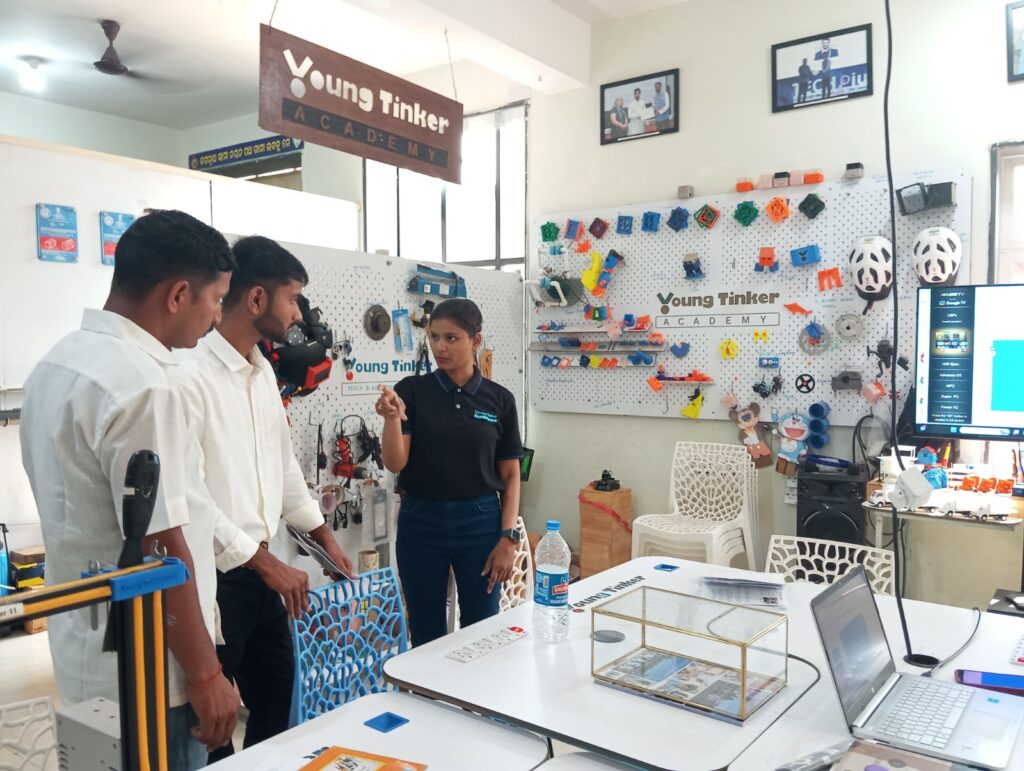
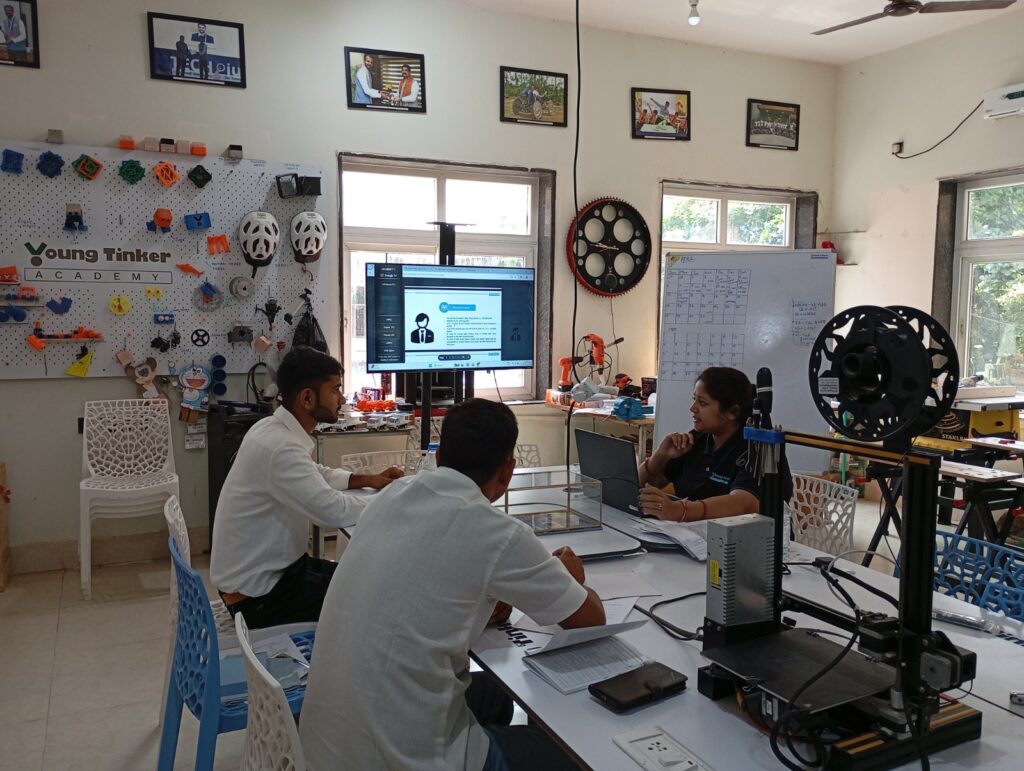
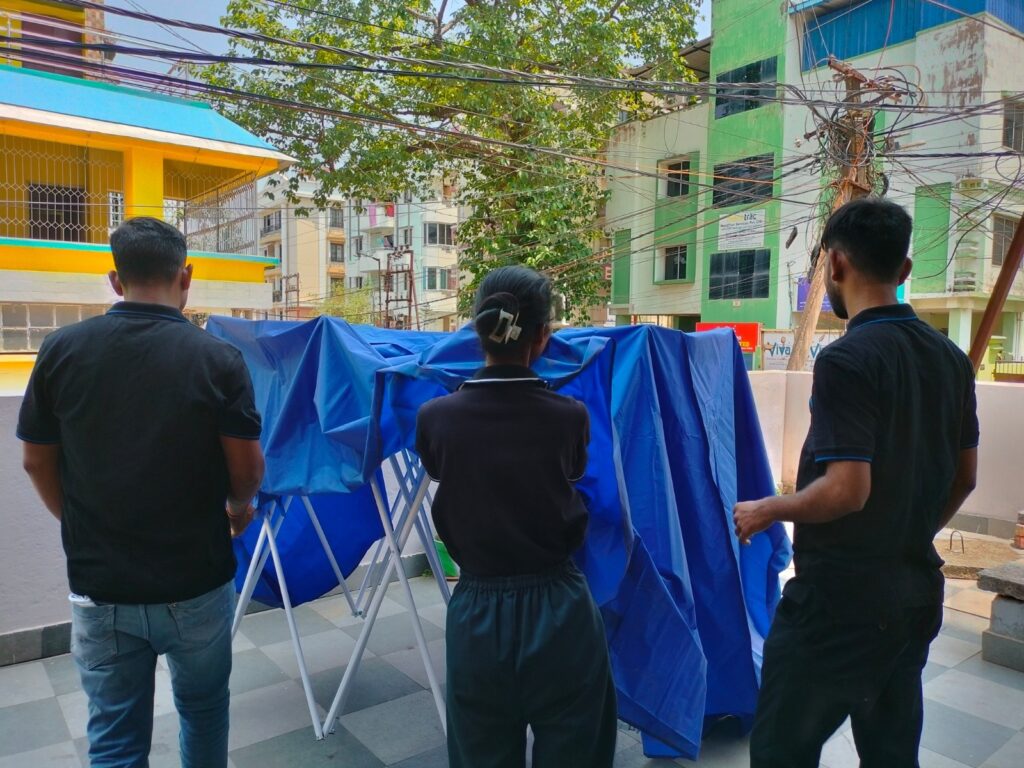
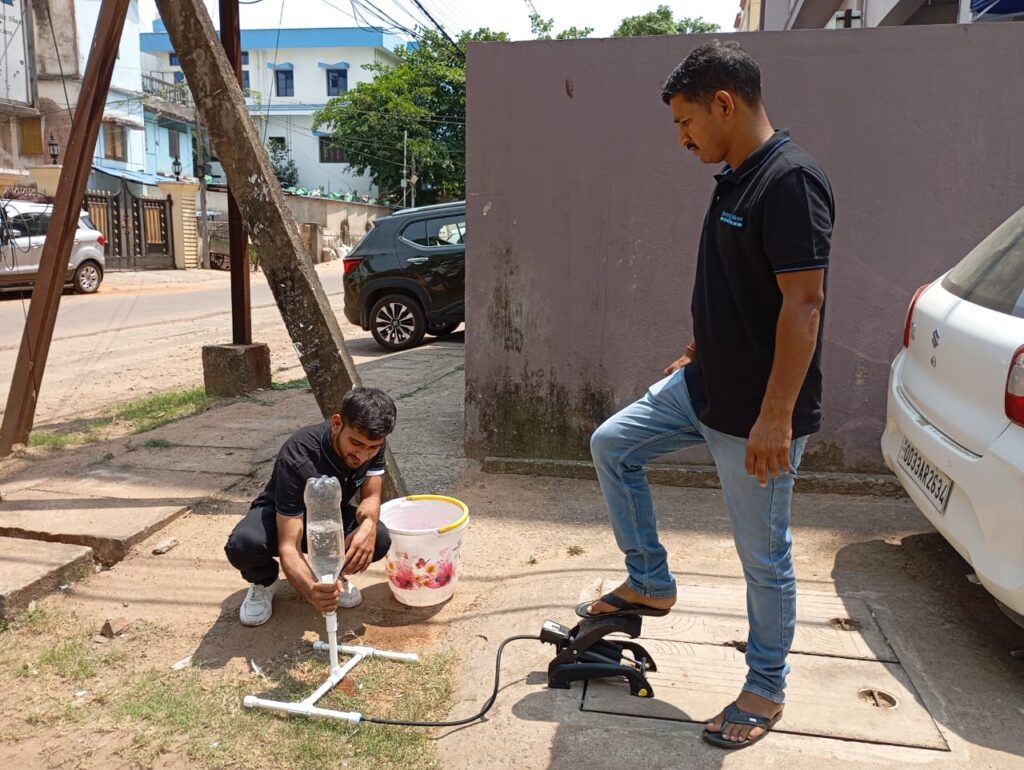
Day 2 (8 April 2025): Exploration & Inspiration
Morning Session:
Mentors take their learnings straight to a local school alongside ToW, delivering the previous day’s content in real-world settings. They face actual classroom dynamics—unexpected questions, logistical hiccups, and moments of pure joy.
Afternoon Session:
Back at the academy, they’re trained on the next module: City/Village Planning. Mentors learn how to guide students in identifying local challenges and designing context-specific solutions—moving from passive observation to active problem-solving.
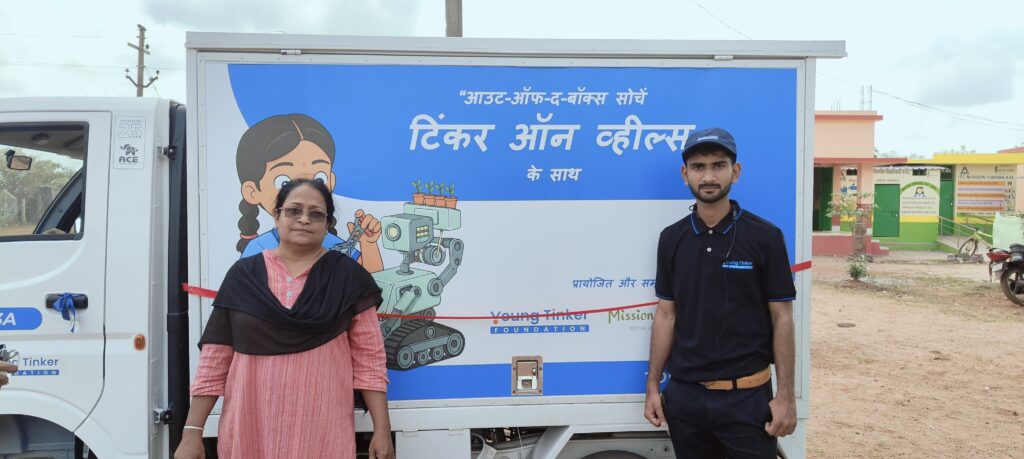
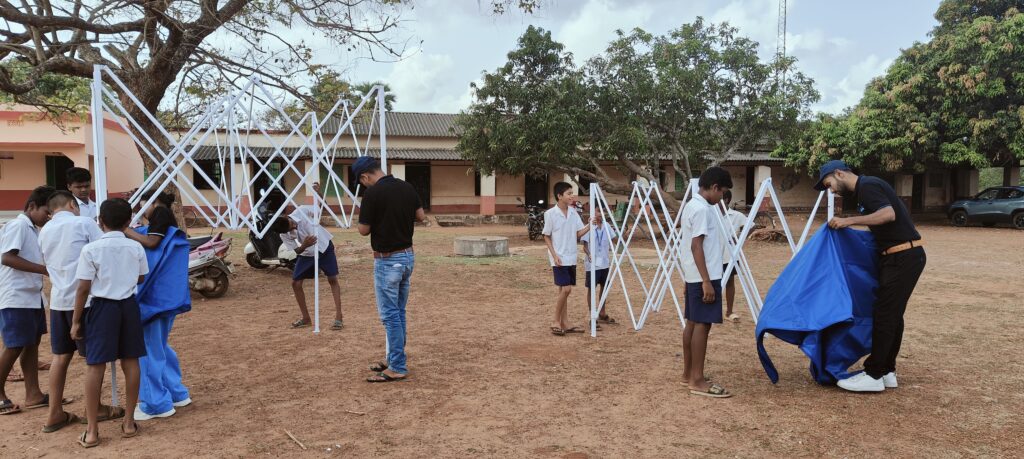
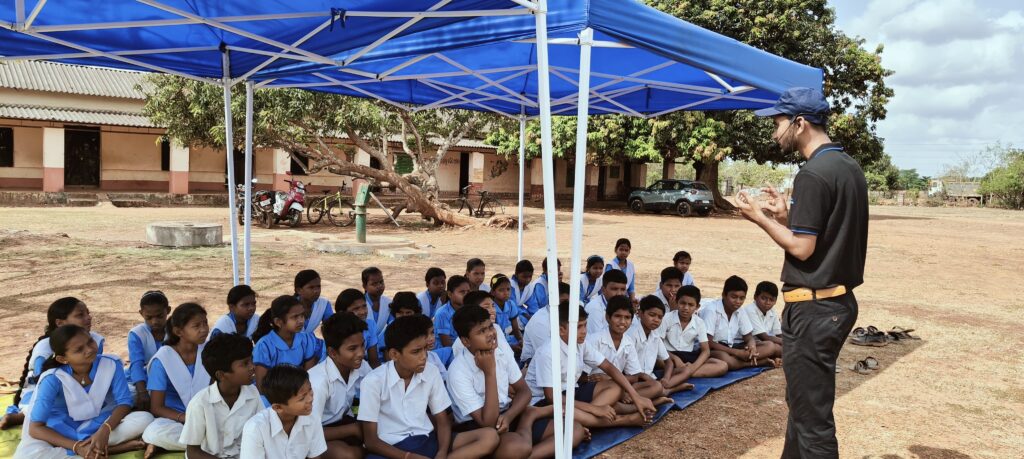
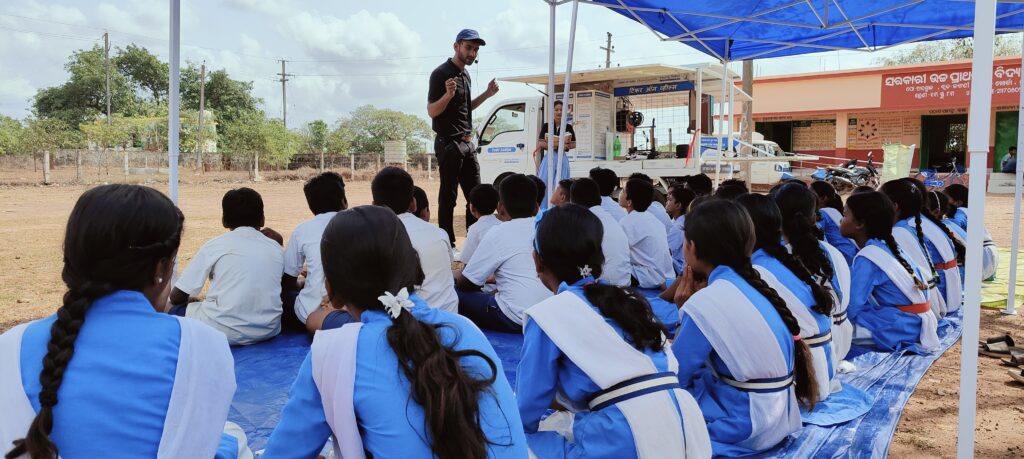
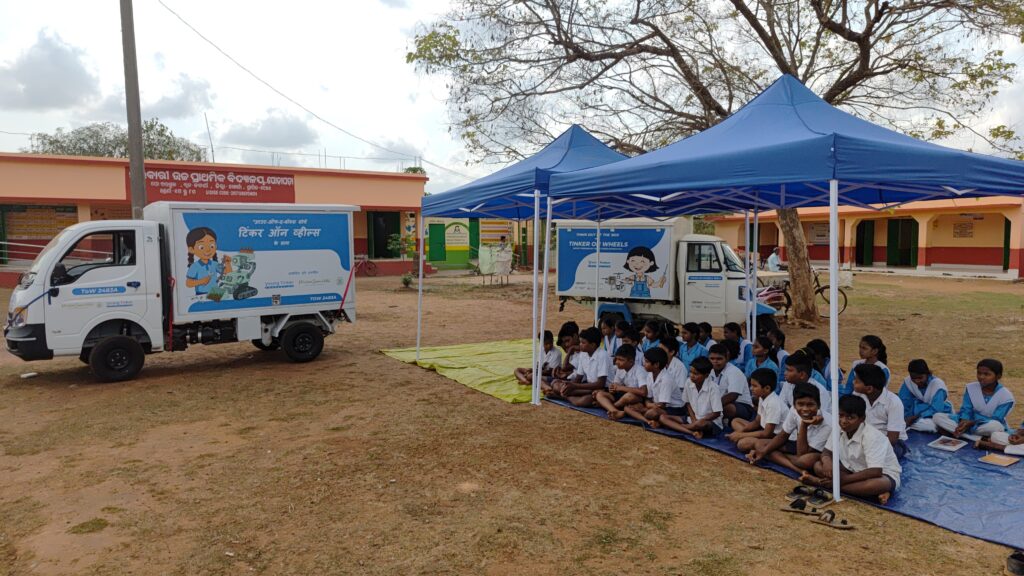
Day 3 (9 April 2025): Creativity & Problem Solving
Mentors return to the field and deliver the City/ Village Planning module. The student response is overwhelmingly positive—eager eyes, creative minds, and a surge of local pride. Mentors also introduce students to Design Thinking through the FATAC framework: Feel, Align, Think, Act, Check—empowering students to reimagine their own surroundings.
Afternoon Session:
Back at the academy, the mentors are trained on next-level topics:
- Sustainable Living: Windmills, Solar Houses, Mathematical Bridges, DC Water Pumps
- Rapid Prototyping: Introduction to 3D Printing
These topics form the foundation for the next phase—equipping students to be future-ready innovators. The students were asked to put all components of their village, colour it and bring on the next workshop.
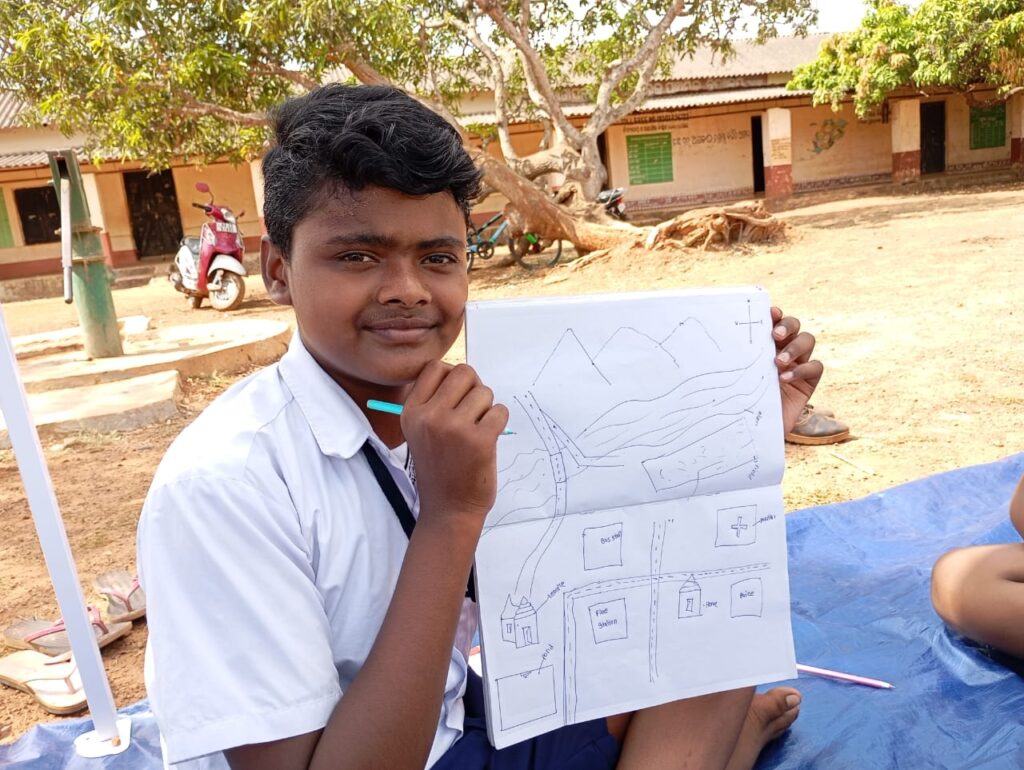
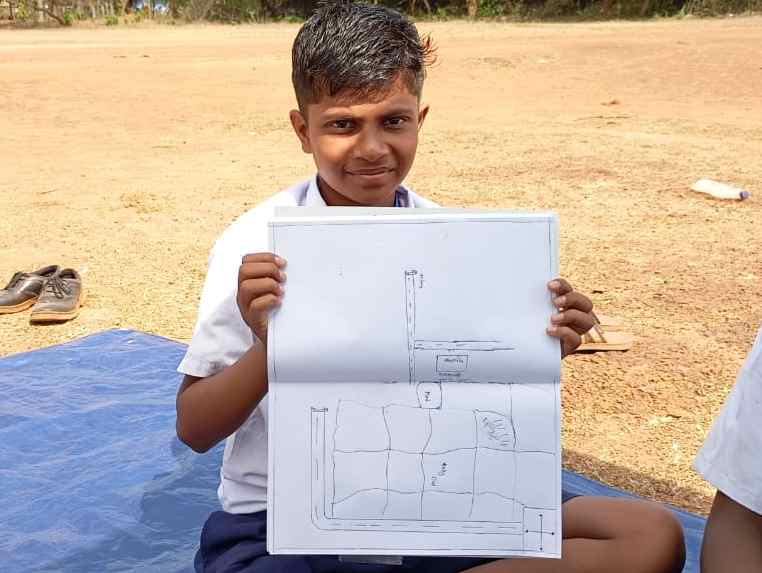
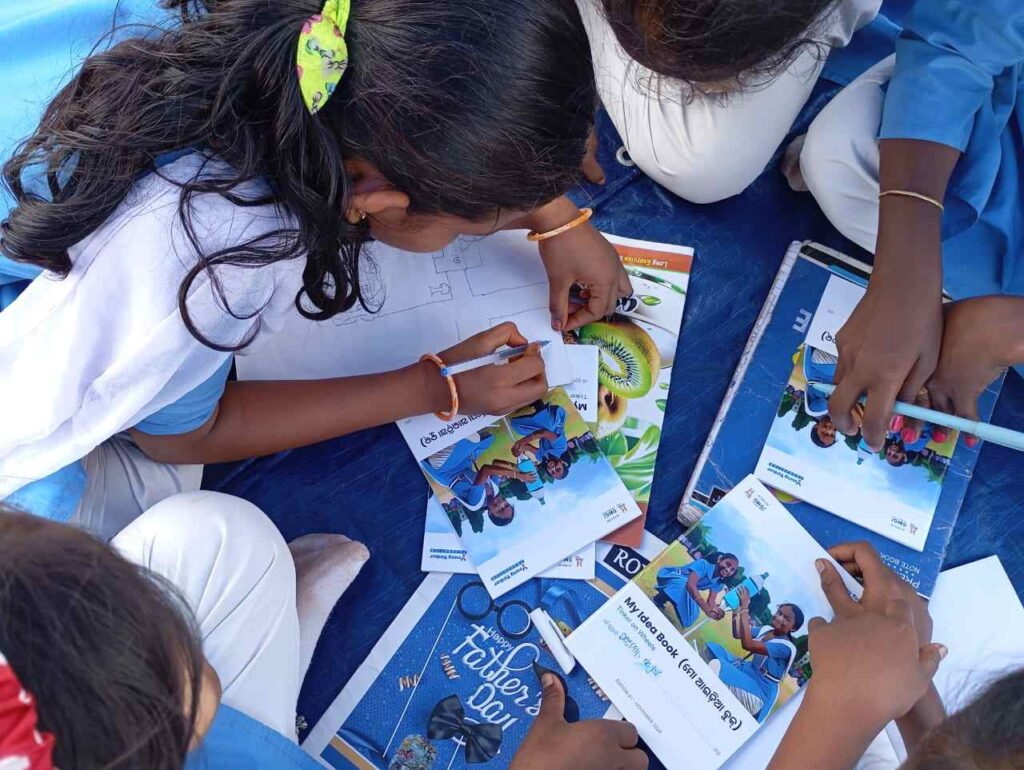
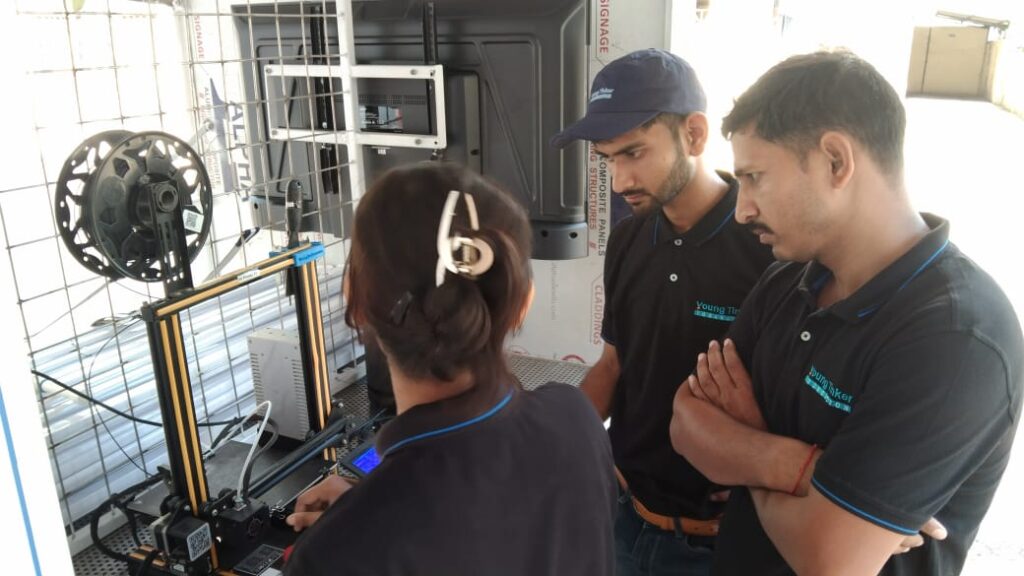
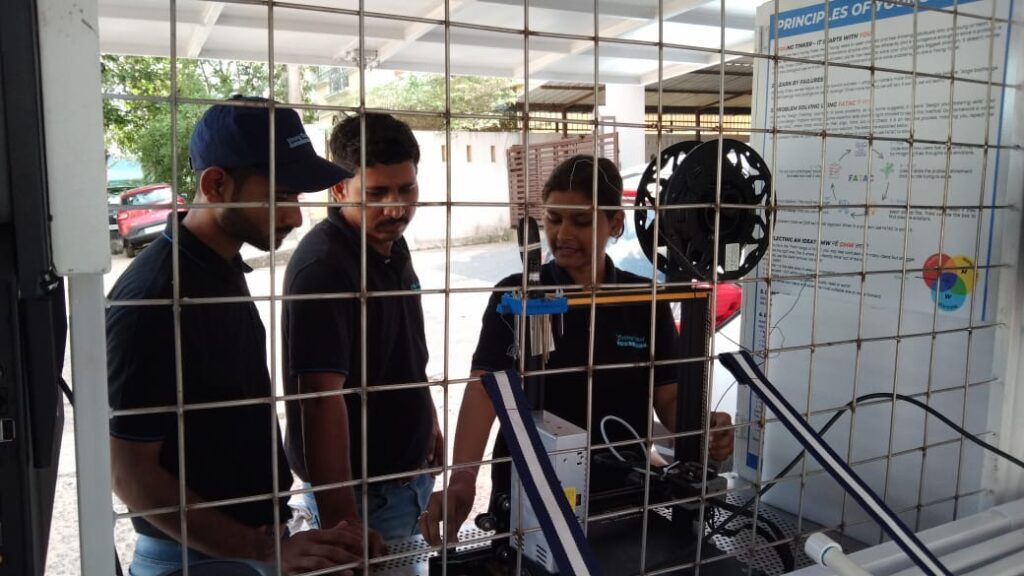
Day 4 (10 April 2025): Hands-on STEM Learning
The day began with school visits where mentors introduced students to the powerful ideas of solar energy, wind power, and rainwater harvesting—not through lectures, but through real, tactile creation. With guidance, students crafted their own solar houses and windmills, watching their concepts take shape in the form of working models. The joy on their faces was proof that they weren’t just learning—they were building.



Day 5 (11 April 2025): Prototyping
The workshop began with students presenting what they had learned in the previous class, along with their homework, which beautifully showcased village planning in their ideabooks.
The spark continued as students were introduced to the world of 3D printing. For many, it was the first time they saw how something imagined in the mind could become a physical object. They also learned the difference between 2D and 3D printing, making the experience not just exciting, but deeply informative.
Later, the mentors returned to the academy, where their own learning journey resumed. They dove into the basics of micro:bit coding, explored creative applications, and got a firsthand understanding of what’s inside a CPU—the brain of every digital device.
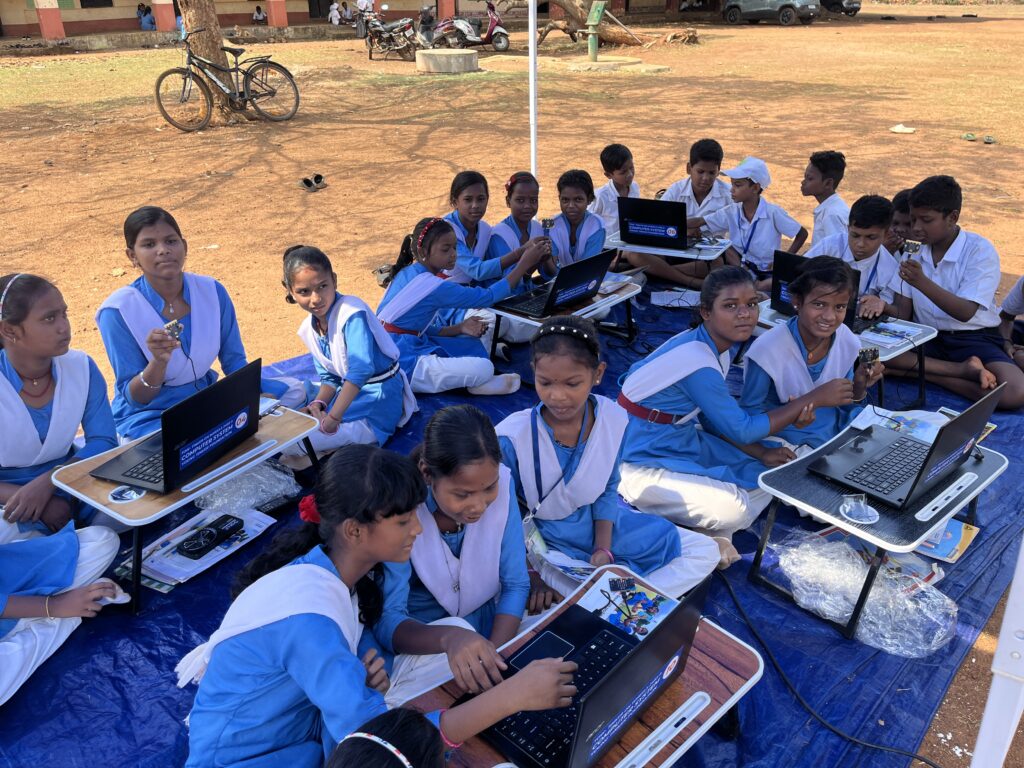
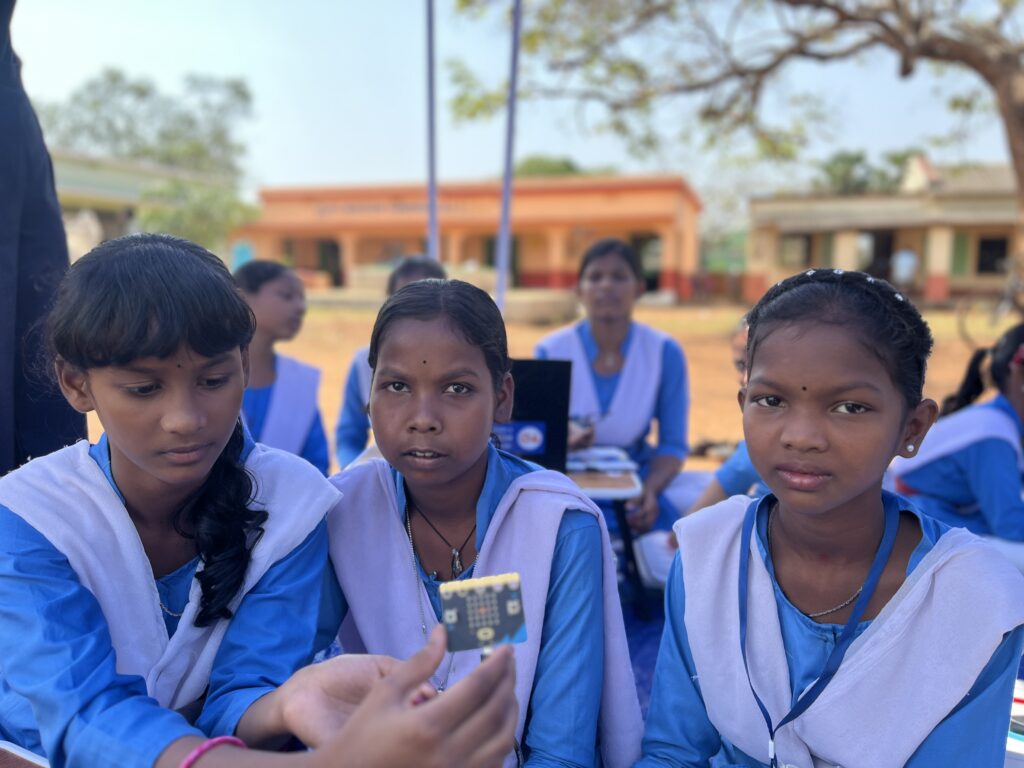
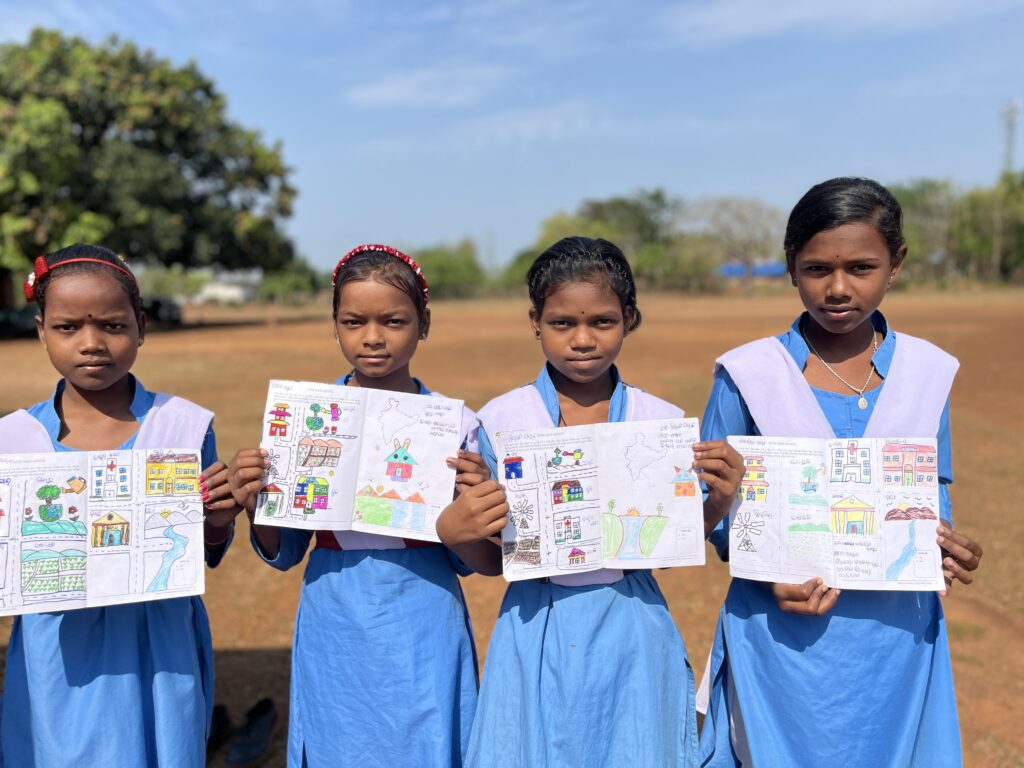
The workshop started with students showing what they leanred in previous class and their homework showcasing the bueatiful village planning done on the ideabook.
The spark continued as students were introduced to the world of 3D printing. For many, it was the first time they saw how something imagined in the mind could become a physical object. They also learned the difference between 2D and 3D printing, making the experience not just exciting, but deeply informative.
Later, the mentors returned to the academy, where their own learning journey resumed. They dove into the basics of micro:bit coding, explored creative applications, and got a firsthand understanding of what’s inside a CPU—the brain of every digital device.
Day 6 (12 April 2025): Innovation, Pitch and Student Graduation
The 6th day of training marked the final day of our school visits—a day filled with learning, emotions, and reflections. As the last ToW session came to a close, a wave of sentiment swept through both students and mentors. Saying goodbye wasn’t easy—bonds had been formed, and the impact was deeply felt on both sides.
Today, students explored farming techniques, learned about mechanical and electrical hand tools, and discussed climate change and its importance. As a token of successful completion, the school was officially certified by the Young Tinker Foundation for completing all 5 days of the ToW workshop, and students received certificates for their participation and enthusiasm.
One of the most heartening changes witnessed was the involvement of girl students in setting up the ToW tent and assisting mentors—something they hesitated to do on Day 1. This small shift symbolized the real impact of the program: building confidence, leadership, and a spirit of collaboration.
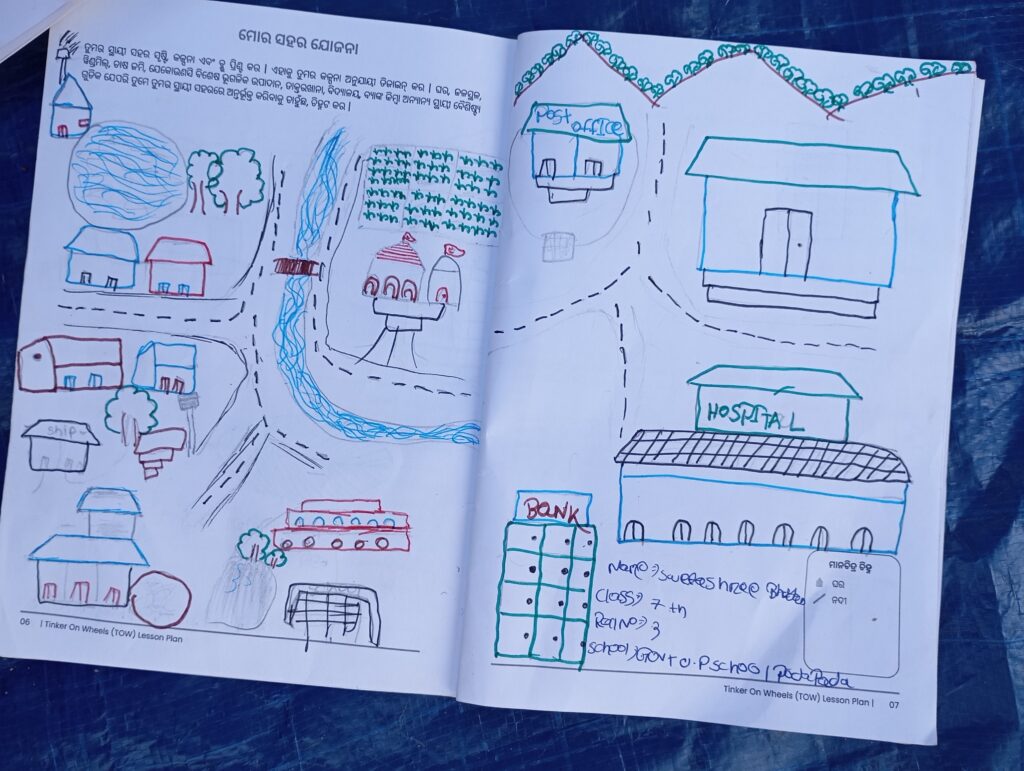
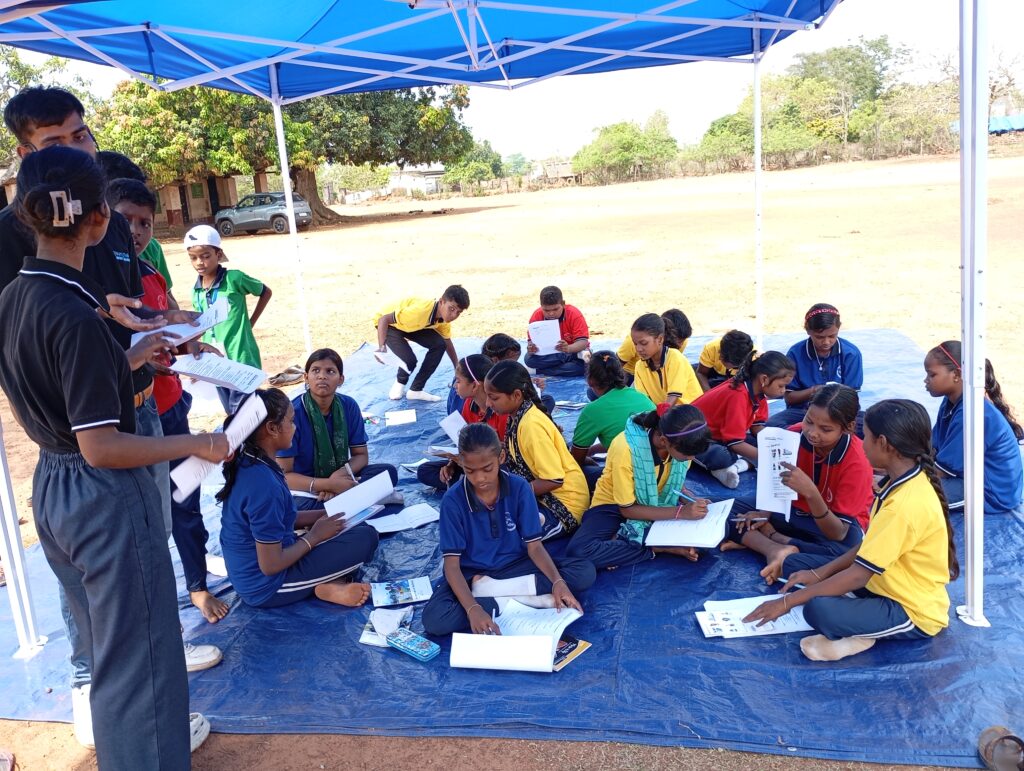
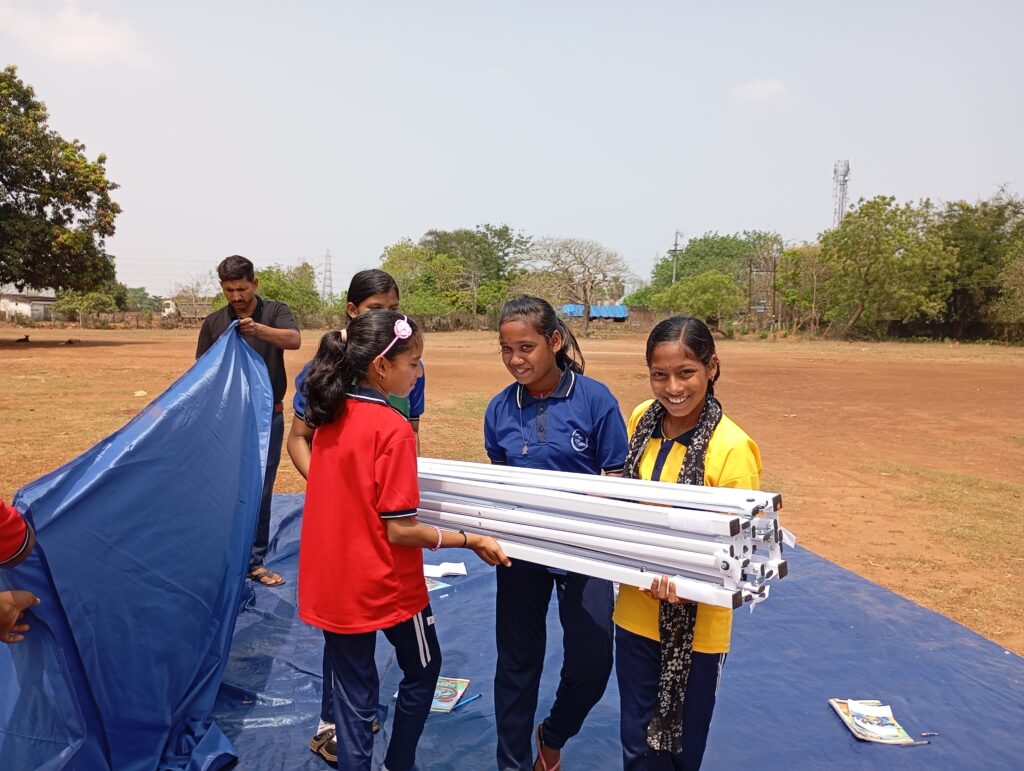
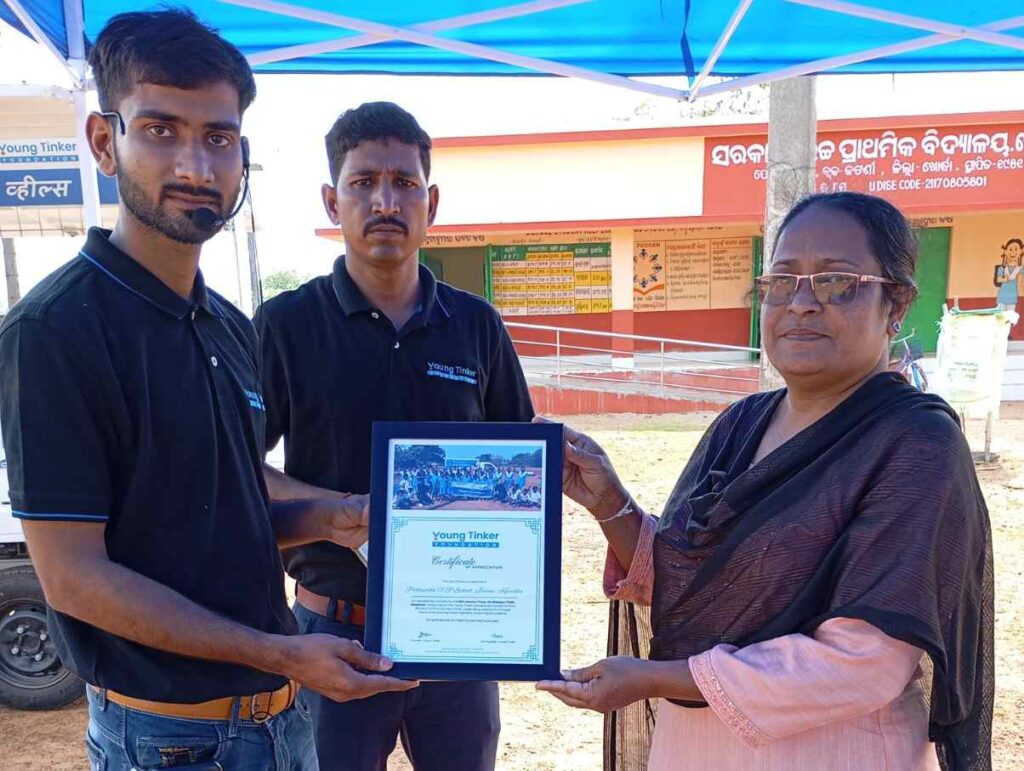
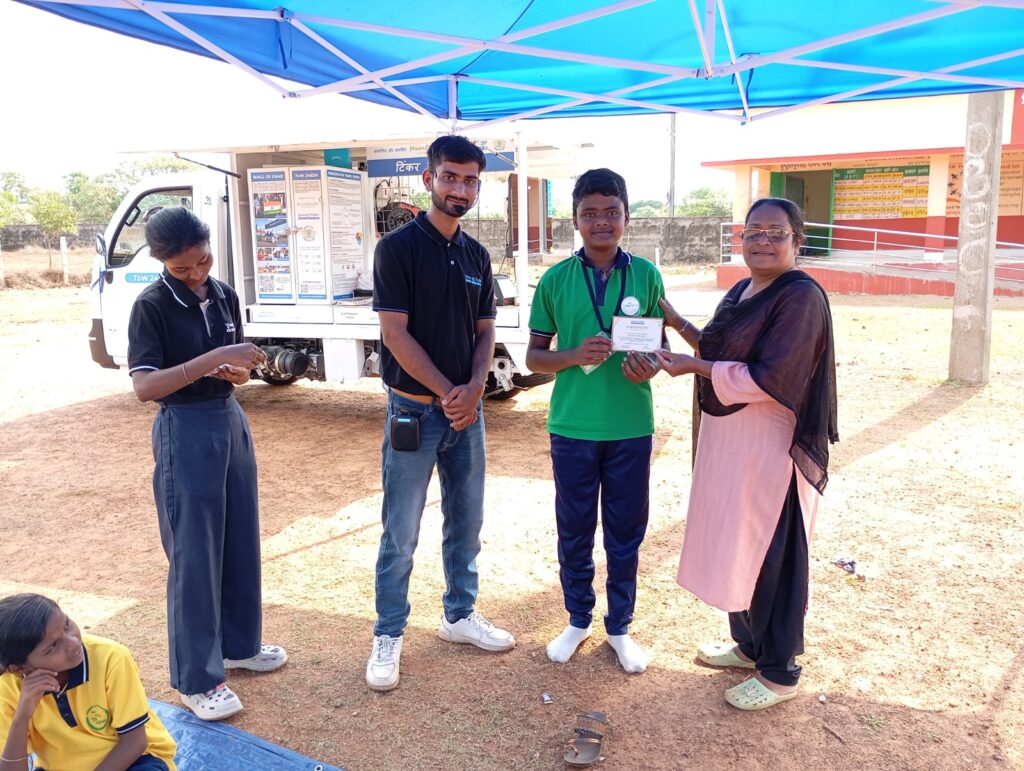
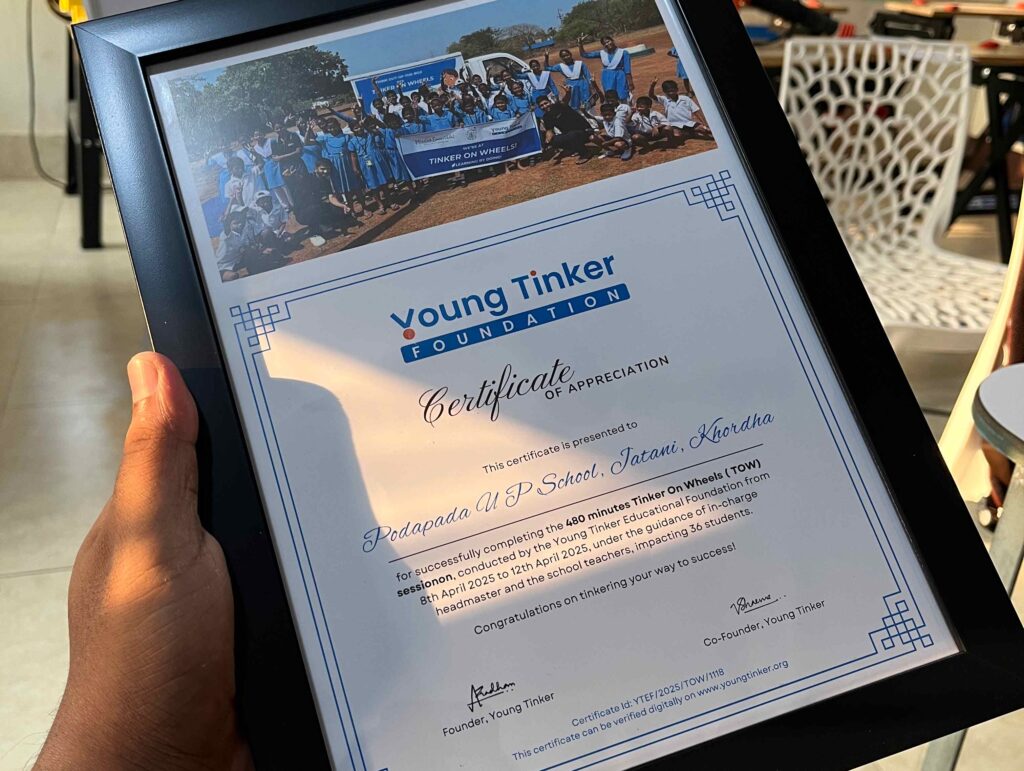
Back at the office, mentors reflected on their journey—discussing the challenges faced, mistakes made, and most importantly, the learnings they would carry forward. It was a powerful close to an incredible week of training, growth, and transformation.
Day 7 (13 April 2025): Troubleshooting and complete setup
The seventh day of the training focused on troubleshooting and setup for the mentors. It was a deep dive into the workings of ToW—where trainers learned every tiny detail, mastering the art of identifying and resolving issues. The day was a perfect blend of fun, challenge, and discovery.
It all began with a hands-on session where mentors built their own robots using simple components like DC motors and joysticks. For many, it was their first experience with robotics—a mix of excitement, curiosity, and nervous energy.
Learning through failure became the central theme. Each setback—from tangled wires to unresponsive motors—was treated as a stepping stone. Rather than giving up, the mentors kept experimenting, problem-solving, and supporting each other. Gradually, each team brought their robots to life. Their faces lit up with childlike joy, echoing the same excitement they hope to ignite in their students. In those moments, they weren’t just assembling machines—they were assembling belief in their own capabilities.
The second half of the day shifted gears to ToW’s setup and logistics. Mentors took full ownership—organizing equipment, aligning tools and kits with lesson plans, and packing essential supplies for seamless school visits. As evening approached, the team continued their work late into the night, testing ToW’s readiness for upcoming sessions in the panchayat. From arranging learning aids to checking power backups, every detail was addressed with care and collaboration.
Today was about more than just robots—it was about preparation, resilience, and teamwork. The mentors are now one step closer to becoming true changemakers, ready to bring hands-on learning to the field.
Day 8 (14 April 2025): Presentation and Mentor Graduation
The final day was dedicated to reflection and assessment. Mentors submitted their learning outcomes and student evaluations, and shared presentations on their key takeaways. The students also graduated and received their certificates. Now, they are ready to create impact in Sonbhadra. The following day, they embarked on a 700 km road journey to Sonbhadra.
